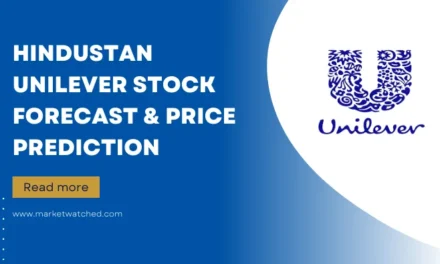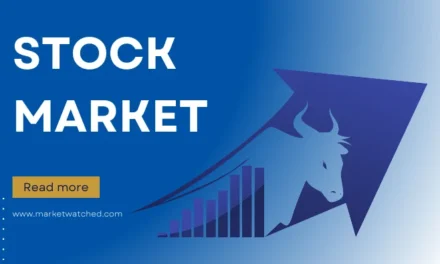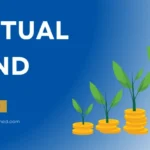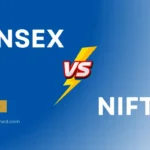
Karur Vysya Bank Share Price Target from 2025 to 2050: Future Outlook
Karur Vysya Bank (KVB) is a prominent private sector bank in India, known for its strong regional presence and customer-centric approach. Established in 1916, the bank has evolved over the years, offering a wide range of financial products and services to its diverse clientele. In this post, we present a comprehensive analysis of the Karur Vysya Bank Share Price Target & Forecast from 2025 to 2050, exploring key growth drivers, financial performance indicators, and expert insights that shape the company’s future trajectory.
Karur Vysya Bank Overview: Growth, Products, & Market Presence
Karur Vysya Bank operates as a scheduled commercial bank, providing a comprehensive suite of banking and financial services. With a strong foothold in the southern states of India, the bank has been instrumental in supporting small and medium enterprises (SMEs), retail customers, and agricultural sectors. KVB’s commitment to technological advancement and customer service has enabled it to maintain a competitive edge in the banking industry.
| Details | Information |
|---|---|
| Founded | 1916 |
| Headquarters | Karur, Tamil Nadu, India |
| Sector | Banking & Financial Services |
| Key Segments | Retail Banking, Corporate Banking, Treasury |
| Stock Listings | NSE: KARURVYSYA, BSE: 590003 |
| Market Presence | Predominantly in South India with a growing national footprint |
On this page, you will find detailed insights into Karur Vysya Bank’s stock, including real-time prices, technical analysis, and long-term forecasts:
✅ Real-Time Stock Price: Automatically updated every minute for the latest market data.
✅ Technical Indicators: Adjusted based on specific time frames to provide timely trading insights.
✅ Financial Reports: Updated quarterly to reflect the company’s latest financial performance.
✅ Stock Charts: Refreshed every minute for real-time visual analysis.
📊 Note: Karur Vysya Bank’s stock forecast prices in the tables are automatically updated based on live asset price changes.
Karur Vysya Bank Financial Overview & Key Metrics
Karur Vysya Bank has demonstrated consistent financial performance, marked by prudent risk management and a focus on profitability. The bank’s emphasis on asset quality and operational efficiency has contributed to its robust financial health. Below is a detailed breakdown of its key financial figures; including revenue, net profit, earnings per share (EPS), and other crucial metrics. These insights help investors gauge the company’s financial health and long-term growth potential.
Use the landscape mode for best viewing on mobile devices.
Investment Potential & Risks
Why Consider Investing in Karur Vysya Bank’s Ltd.?
- Strong Regional Presence: KVB’s deep-rooted presence in South India provides it with a loyal customer base and a thorough understanding of the regional market dynamics.
- Focus on SMEs and Retail Banking: The bank’s strategic emphasis on small and medium enterprises and retail customers ensures diversified revenue streams and reduces dependency on large corporate clients.
- Technological Advancements: Investments in digital banking platforms and automation have enhanced customer experience and operational efficiency.
- Robust Asset Quality: KVB has maintained commendable asset quality, with low levels of non-performing assets, reflecting its prudent lending practices.
- Experienced Management Team: The bank’s leadership brings a wealth of experience and a clear vision for sustainable growth.
Risks to Consider
- Concentration Risk: A significant portion of the bank’s business is concentrated in specific regions, which may expose it to localized economic downturns.
- Regulatory Changes: The banking sector is subject to stringent regulatory norms, and any adverse changes could impact the bank’s operations.
- Competition: Intense competition from other private and public sector banks may affect KVB’s market share and profitability.
- Interest Rate Fluctuations: Changes in interest rates can influence the bank’s net interest margins and overall profitability.
- Technological Disruptions: Rapid technological changes require continuous investment, and failure to adapt may affect the bank’s competitiveness.
Karur Vysya Bank Share Price Target: Tomorrow & Weekly Outlook
Karur Vysya Bank’s stock price forecasts for tomorrow and the upcoming week are based on recent market trends, historical price movements, and key technical indicators. These projections offer valuable insights into potential price changes, helping traders and investors make informed decisions.
However, various factors can influence stock prices; including market sentiment, news updates, and global events; so it’s always wise to stay updated and flexible with strategies.
📊 Below, you’ll find the expected stock price targets for the coming days:
| Date | Min. Price | Max. Price | Stock Price |
|---|---|---|---|
| 09-Feb | 130.62 | 146.99 | 138.69 |
| 10-Feb | 135.14 | 151.85 | 143.24 |
| 11-Feb | 137.39 | 152.66 | 144.86 |
| 12-Feb | 136.86 | 153.01 | 144.77 |
| 13-Feb | 136.96 | 152.53 | 145.11 |
| 16-Feb | 135.11 | 152.34 | 143.62 |
| 17-Feb | 139.63 | 156.03 | 148.17 |
| 18-Feb | 141.22 | 158.53 | 149.79 |
| 19-Feb | 141.51 | 157.14 | 149.70 |
| 20-Feb | 141.40 | 157.88 | 150.04 |
Technical Analysis of Karur Vysya Bank Using Key Indicators
For Karur Vysya Bank’s Ltd., you can leverage indicator-based technical analysis to identify optimal market entry and exit points. Adjust the time frame according to your trading strategy for more accurate insights.
How to Interpret Technical Analysis Signals:
| ✅ Sell” or “Strong Sell | Indicates bearish (negative) market sentiment, suggesting a potential decline. |
| ✅ Buy” or “Strong Buy | Indicates bullish (positive) market sentiment, signaling a potential uptrend. |
Time Frame Considerations:
- Short-Term Analysis (Intraday/Short Swing Trading): Use time frames ranging from 15 minutes to 2 hours.
- Medium to Long-Term Analysis: If you plan to hold for more than a week, use daily to weekly time frames.
Below, you’ll find technical indicator-based buy and sell signals based on different time frames to assist in your investment decisions.
Future Growth Drivers for Karur Vysya Bank
- Digital Transformation: KVB’s ongoing digital initiatives aim to enhance customer experience, streamline operations, and expand its reach to tech-savvy customers.
- Expansion into New Markets: The bank is exploring opportunities to establish its presence in untapped regions, thereby diversifying its geographical footprint.
- Product Diversification: Introducing new financial products and services tailored to customer needs can open additional revenue streams.
- Strategic Partnerships: Collaborations with fintech companies and other financial institutions can provide access to innovative technologies and new customer segments.
- Focus on Sustainable Banking: Adopting environmentally and socially responsible banking practices can enhance the bank’s reputation and attract conscious investors.
Karur Vysya Bank Share Price Target & Forecast (2025-2050)
This long-term stock price forecast for Karur Vysya Bank is based on historical market trends, the company’s growth prospects, and industry analysis. While forecasting stock prices for the long term involves uncertainty, these forecasts help investors gain an understanding of potential future price moves.
📊 The following table presents the Karur Vysya Bank share price target forecast from 2025 to 2050, based on current market trends and available data.
| Year | Min. Price | Max. Price |
|---|---|---|
| 2026 | ₹ 121.83 | ₹ 141.39 |
| 2027 | ₹ 137.71 | ₹ 157.29 |
| 2028 | ₹ 153.61 | ₹ 173.17 |
| 2029 | ₹ 169.52 | ₹ 189.08 |
| 2030 | ₹ 185.44 | ₹ 204.99 |
| 2031 | ₹ 203.41 | ₹ 204.67 |
| 2032 | ₹ 204.36 | ₹ 251.82 |
| 2033 | ₹ 218.91 | ₹ 269.52 |
| 2034 | ₹ 233.46 | ₹ 287.23 |
| 2035 | ₹ 248.00 | ₹ 304.93 |
| 2036 | ₹ 262.59 | ₹ 322.68 |
| 2040 | ₹ 320.81 | ₹ 393.53 |
| 2050 | ₹ 466.36 | ₹ 570.65 |
The Karur Vysya Bank Ltd. share price targets provided here are for informational purposes only. Both short-term and long-term stock price predictions are based on historical data and market trends, but actual prices may vary due to market fluctuations and external factors. This forecast assumes positive market conditions and does not account for unforeseen risks, economic uncertainties, or company-specific challenges. Investors should conduct their research before making any financial decisions.
Karur Vysya Bank Share Price Target Year-wise Breakdown (2025 to 2050)
Karur Vysya Bank Share Price Target 2025
Data is currently unavailable. Please check back later.
Karur Vysya Bank Share Price Target 2026
Data is currently unavailable. Please check back later.
Karur Vysya Bank Share Price Target 2027
Data is currently unavailable. Please check back later.
Karur Vysya Bank Share Price Target 2028
Data is currently unavailable. Please check back later.
Karur Vysya Bank Share Price Target 2029
Data is currently unavailable. Please check back later.
Karur Vysya Bank Share Price Target 2030
Data is currently unavailable. Please check back later.
Karur Vysya Bank Share Price Target 2040
Data is currently unavailable. Please check back later.
Karur Vysya Bank Share Price Target 2050
Data is currently unavailable. Please check back later.
Live Karur Vysya Bank Stock Chart & Price Trends
Track Karur Vysya Bank Ltd.’s stock performance in real time with our interactive chart below. This live tool provides up-to-the-minute price movements, trading volume, and market trends, helping investors and market watchers stay fully informed. Easily switch between intraday, daily, weekly, or monthly views, and apply a variety of technical indicators to support deeper analysis. Whether you’re actively trading or simply monitoring the market, this chart offers the insights you need to make smart, timely decisions.
🔗 Also Read: Divi’s Laboratories Share Price Target: Future Outlook
Divi’s Laboratories Ltd. is a globally recognized Indian pharmaceutical company known for manufacturing active pharmaceutical ingredients (APIs), intermediates, and custom synthesis of drug compounds. Read more
Expert Opinions & Market Sentiment
Brokerage & Analyst Ratings
- Emkay Global: “Buy – KVB’s strong return on assets and prudent risk management make it a compelling investment choice.”
- Anand Rathi: “Buy – The bank’s consistent performance and focus on retail and SME segments are commendable.”
- DAM Capital: “Buy – KVB’s strategic initiatives and robust financial metrics position it well for future growth.”
Investor Sentiment & Market Trends
- Institutional Investors: The bank has attracted significant interest from institutional investors, reflecting confidence in its long-term prospects.
- Retail Participation: An increasing number of retail investors are showing interest in KVB, drawn by its consistent dividends and growth potential.
- Market Mood: Overall market sentiment towards KVB remains positive, supported by its strong fundamentals and strategic initiatives.
❓FAQs
Is Karur Vysya Bank a good long-term investment?
KVB’s consistent financial performance, strong regional presence, and focus on digital transformation make it a promising long-term investment.
What are the key growth drivers for Karur Vysya Bank?
The bank’s digital initiatives, expansion into new markets, product diversification, and strategic partnerships are pivotal growth drivers.
Does Karur Vysya Bank pay dividends?
Yes, KVB has a history of paying regular dividends, reflecting its commitment to shareholder value.
How does Karur Vysya Bank compare with its peers?
KVB stands out for its strong asset quality, focus on SMEs and retail banking, and consistent profitability, positioning it favorably among its peers.
Price Prediction Methodology
Our predictions combine expert analysis, technical indicators, and algorithmic models to provide an informed outlook.
📊 Want to know more? Click here to read our full methodology.












